The Chefs | Interview | “Our positive sound, our harmonies”
Before the term Indie Pop had even been invented The Chefs had already nailed it.
Formed by Carl Evans and Helen (McCookerybook) McCallum, they first appeared on the ‘Vaultage 79’ compilation before releasing two singles for the Brighton based Attrix Records. They recorded two sessions for the John Peel Show and one for Richard Skinner briefly changing their name to Skat and then disbanding. Helen went on to success and a major label deal with Helen And The Horns.
“We had our own little musical “world” with its own musical logic”
It’s really great to have you. Would you like to talk about your background? Where did you grow up and what are some of the early influences for you?
Helen (McCookerybook) McCallum: We grew up in a village in Northumberland (the north-east of England) called Wylam. Our parents were of Scottish and Scottish/American heritage, and had a quirky taste in music: as young children we listened to Ivor Cutler, Tom Lehrer, Fats Waller, and the chart singles that our dad bought regularly: Sandie Shaw, Nancy Sinatra. He was also a fan of Melanie, and Herb Alpert.
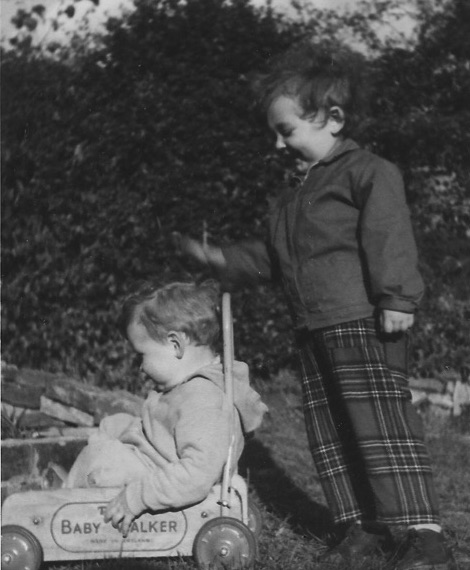
It was very difficult to get into Newcastle, the closest large town, to see live music because public transport was terrible. I used to go to the village youth club (the youth workers were Northern Soul aficionados) and later the folk club in the pub, which were the only things to do. I became an expert in whiny folk song choruses.
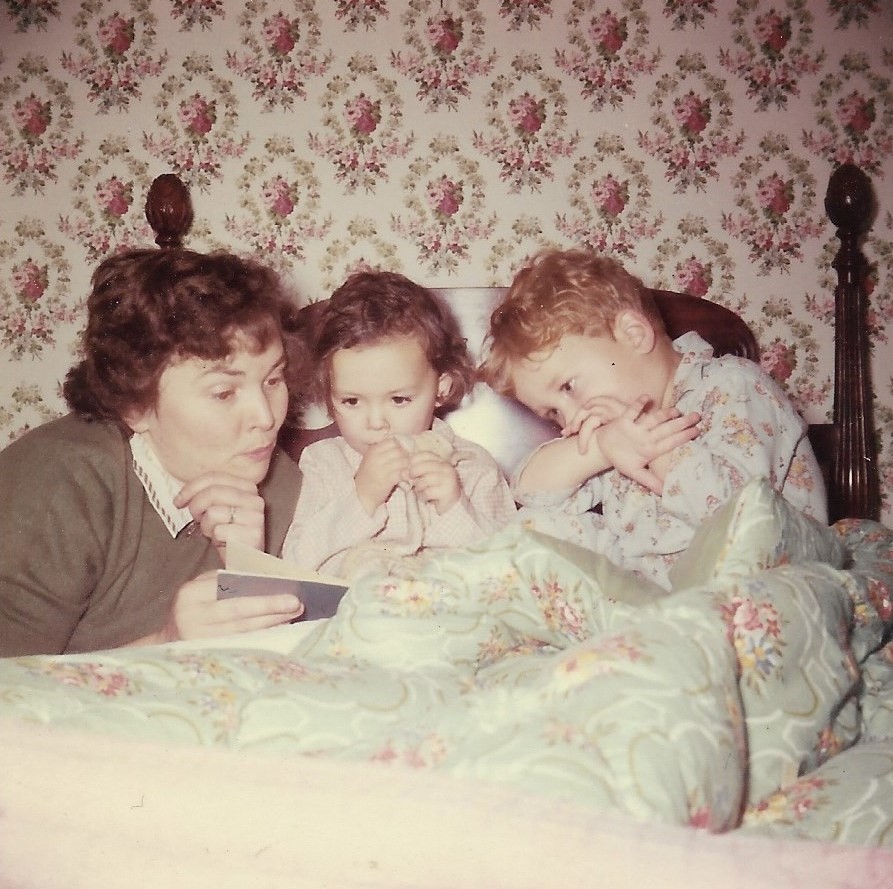
I spent a lot of my pocket money on stacks of vinyl singles with no sleeves that I bought at jumble sales in the village institute. They came tied up with rough hairy strings and were scratched to pieces, but I didn’t care. I also subscribed to an ex-jukebox mail order catalogue and bought a lot of singles that way. You had to buy the centres separately because the middle had been punched out so they could be played on the machine. So musically, my influences were pop singles, although I was also a big fan of James Taylor’s guitar picking style.
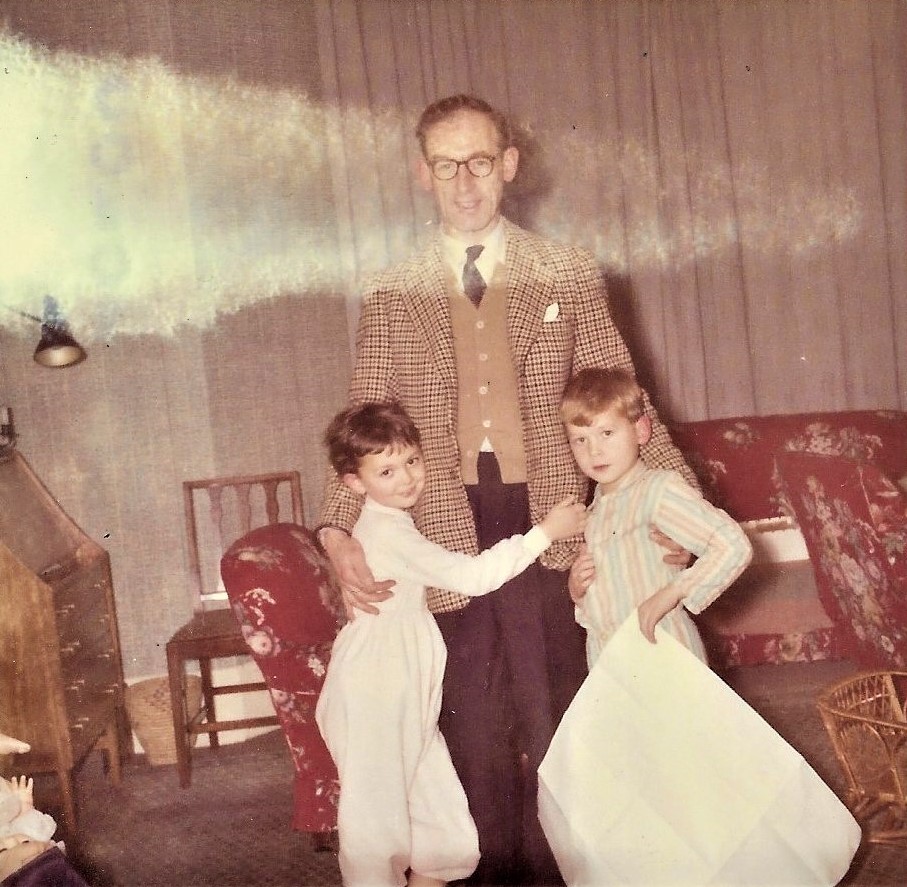
Was there a certain moment when you knew you wanted to become a musician?
Helen (McCookerybook) McCallum: I was given a cheap Spanish guitar for my 14th birthday and started to teach myself from a book. When I got to the end of the book, my learning ended! I never thought that I would get any further than that, but when I ended up as a very miserable student at Art College in Brighton, my friends in the squat where I was living formed a punk band and told me that I was going to be the bass player. I borrowed a bass from Poison Girls (it used to belong to the Buzzcocks) and took to it like a duck to water. I remember being told what to play, and instinctively knowing that it was wrong: I’d been listening to the bass underpinning pop songs for many years and I knew what I wanted to do. As soon as I got to play an amplified bass, I understood what a powerful instrument it was – shaking the ground beneath people’s feet and hitting them in the chest- but at the same time not showing off on stage, it is the perfect instrument for an introvert.
Helen, tell us about your move from Wylam to Brighton to study fine art printmaking.
Helen (McCookerybook) McCallum: The north-east was like a graveyard in the 1970s. It’s so different now! But everyone at my school either started to work at the local council or became a school teacher. I was desperate to escape and have adventures. I went to Sunderland Polytechnic to do an art foundation course and met all the mad people from the area who felt the same as me. It was wonderful. I learned how to etch, and enrolled on the only Printmaking degree course in the UK. But it was such a disappointment. Some of the students treated me like a village idiot because I had a regional accent, and being able to join a punk band rescued me from that too!
One of the first bands you were part of was called Joby and the Hooligans, what kind of places did you play?
Helen (McCookerybook) McCallum: The main place we played was the Crypt – underneath a Community Resource Centre in Brighton. Bands took over the whole place to rehearse and put on gigs. More than 50 bands were based down there and they used to borrow and lend equipment, share gigs and squabble. It was dirty, covered in graffiti and felt like home. For the first time, I felt like I belonged to a community, even though it was volatile and sometimes even violent. Joby, our lead singer, was a controversial figure who loved winding people up – but he valued me a lot, and encouraged me to write songs. We remained friends until he died a couple of years ago. I didn’t care about his bad behaviour – I knew he had a good heart in there somewhere and he was an original thinker. It’s great to know people like that. His reasons for being in a punk band were political rather than anything else and I always admired him for that.
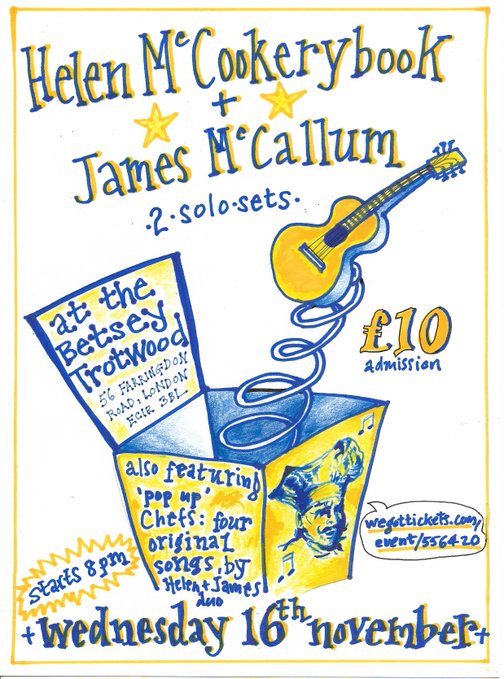
“I wanted to give a female perspective to all that promiscuity”
Then you changed your name to Smartees, would love it if you can talk about songs like ‘Thrush’ and ‘Let’s Make Up’.
Helen (McCookerybook) McCallum: We started to really get into writing songs, and expanded Joby and the Hooligans, Carl Evans joined us on guitar, and Tracy Preston on vocals. I wrote ‘Thrush’ as a protest against all those songs like Led Zeppelin’s ‘The Lemon Song’ which I’d had to listen to at school because The Lads had control of the 6th Form record player. I wanted to give a female perspective to all that promiscuity! ‘Let’s Make Up’ was Tracy’s idea: to use the make-up instructions girls our age were given by teen magazines to make a song. We had fun writing that one, because we both shared the same experience.
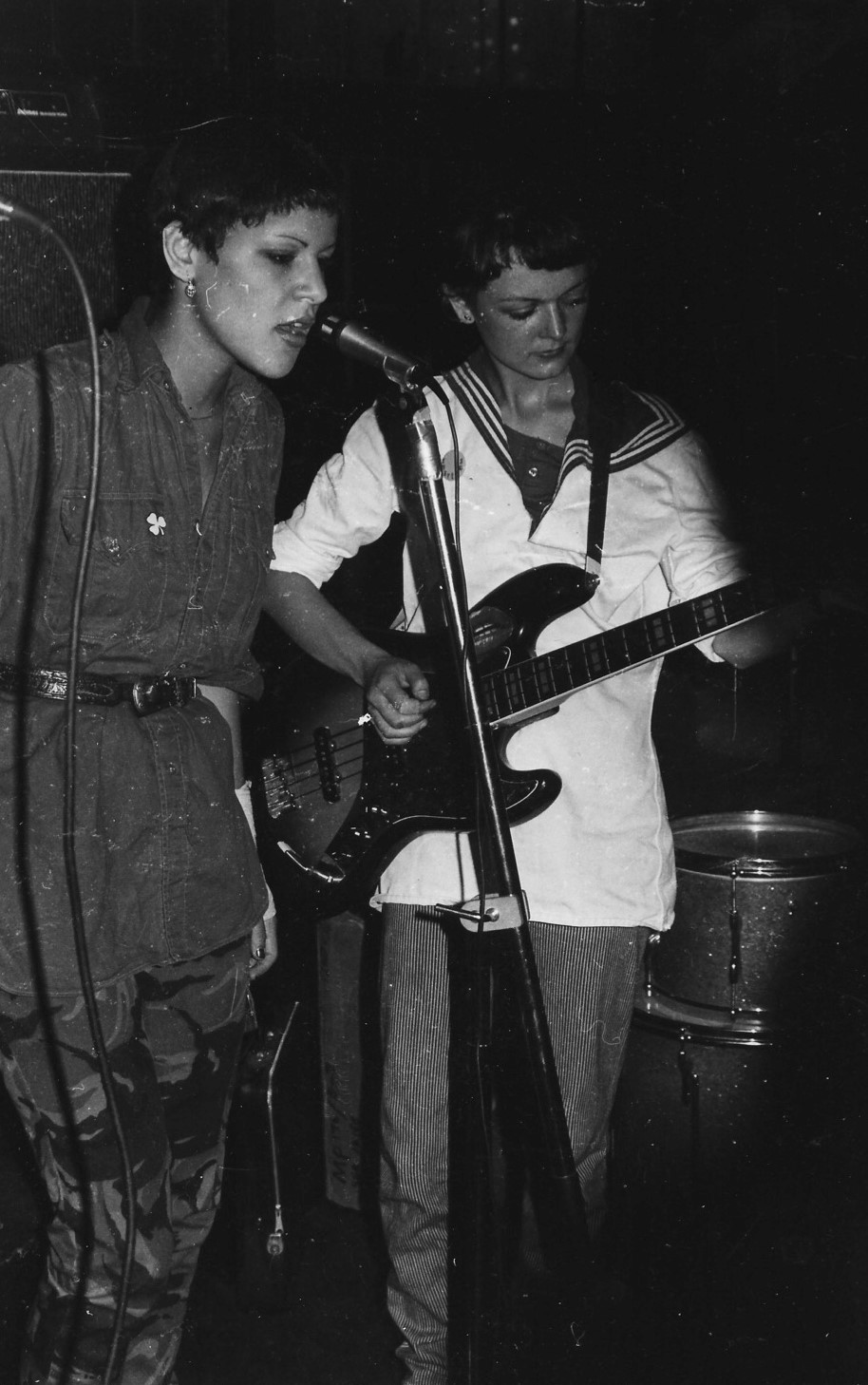
What happened to the Smartees?
Helen (McCookerybook) McCallum: We exhausted ourselves – there were relationships within the band that caused tension. It was a pity, because all of us were involved in songwriting and I think we had really good songs. There were a lot of us on stage and we used to get audience members up on stage to join us on backing vocals, which was a really social thing to do.
What led you to form the Chefs? There’s an interesting story surrounding the band’s name. Tell us about the three early songs you wrote…
Helen (McCookerybook) McCallum: For my final project at college I made a little illustrated book called The Handbook of Suburban Styles. One of the Suburban Styles was a dancing chef in the kitchen, singing the words to the song ‘Food’. His name was Ken Wood and he had a band called The Chefs (there was a food mixer called the Kenwood Chef at the time). After The Smartees broke up, Carl Evans came round and asked me to be in a band with him. I was shocked, because up until then I’d not thought of myself as a person anyone might want to form a band with. I’d imagined that I was just a person who tagged along. He had written the music to ‘Food’ and played it to me.
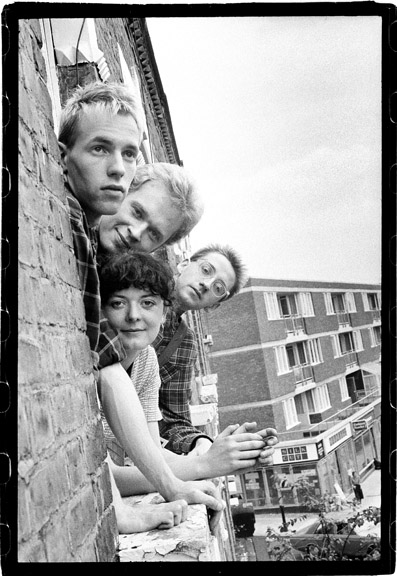
We then wrote ‘Boasting’ together. Rod Bloor, the original drummer, lived a few houses down. I asked Carl Evans what we should call ourselves. “The Chefs,” he said. I think at the first gig we only played three songs: we wrote an intro to the Chefs: “We’re the Chefs, how do you do, we have come to play for you,” ‘Food’ and ‘Boasting’. We spent many hours trying to work out how to write long songs – each of the songs was less than two minutes long! Later we added a song called ‘Scottish Instrumental,’ and added ‘Thrush’ and ‘Sweetie’ which we had individually written for The Smartees.
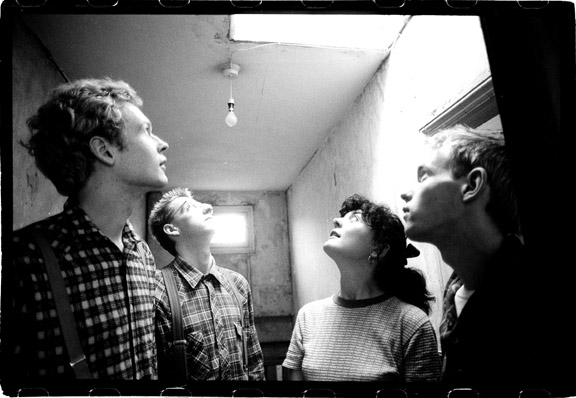
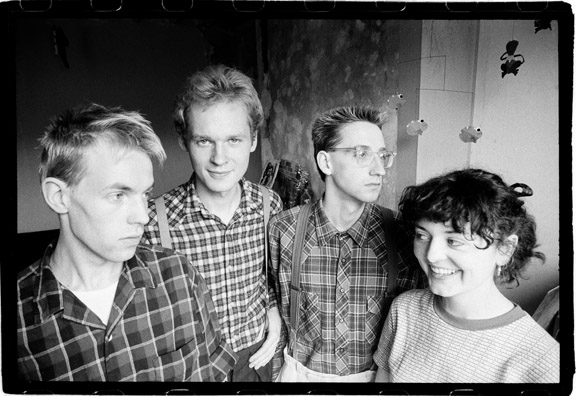
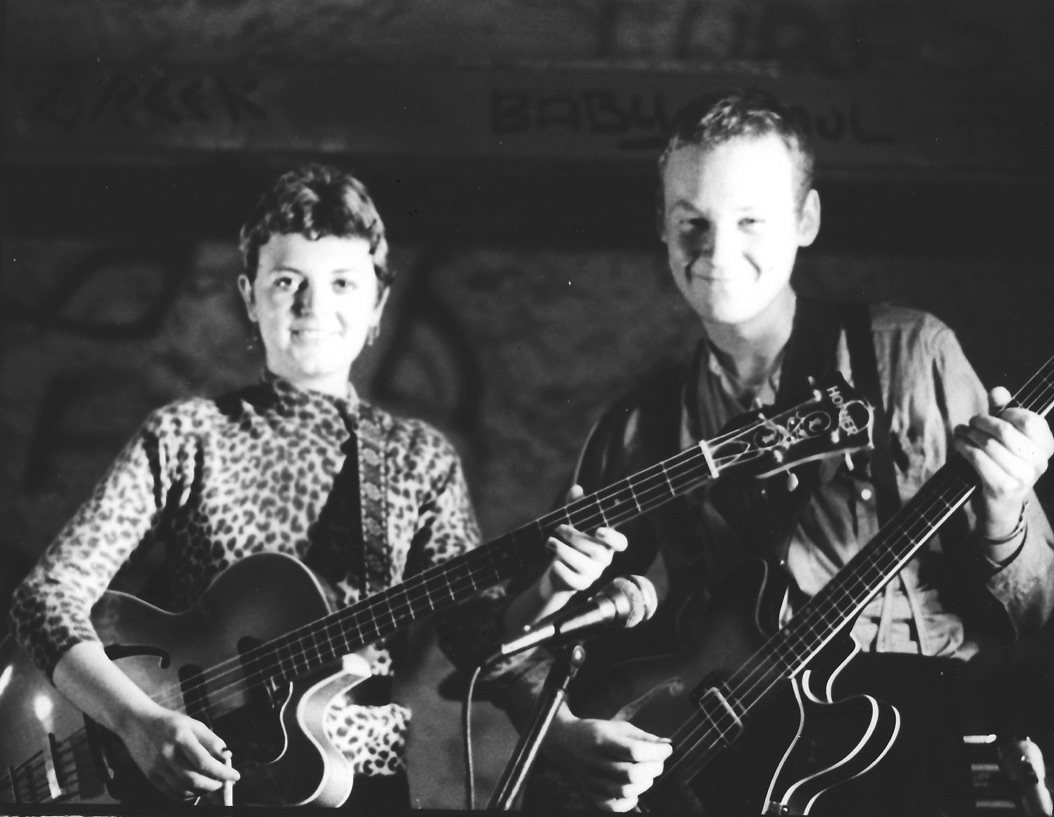
Did you play any gigs early on?
Helen (McCookerybook) McCallum: We started playing gigs as soon as Rod Bloor joined. It seemed so easy to get gigs back then – it was a very supportive music community. This would be early 1979.
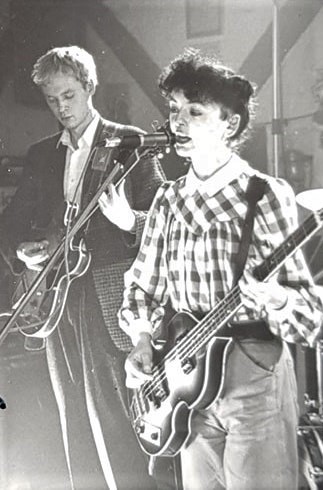
How did you get involved with Vaultage 79, a compilation produced by Brighton’s independent record label, Attrix?
Helen (McCookerybook) McCallum: Joby and the Hooligans were too controversial for the label, and The Smartees were too short lived. By the time Attrix asked us for tracks, we were quite well -rehearsed, having done a lot of live gigs. We had our own little following, the Pet Shop Girls, who worked in a local pet shop, and also friends from the shop where I worked at the time. Rick and Julie, who ran the label, had been friends of mine for a long time, and Stuart Jones, who worked in their shop, started to manage us.
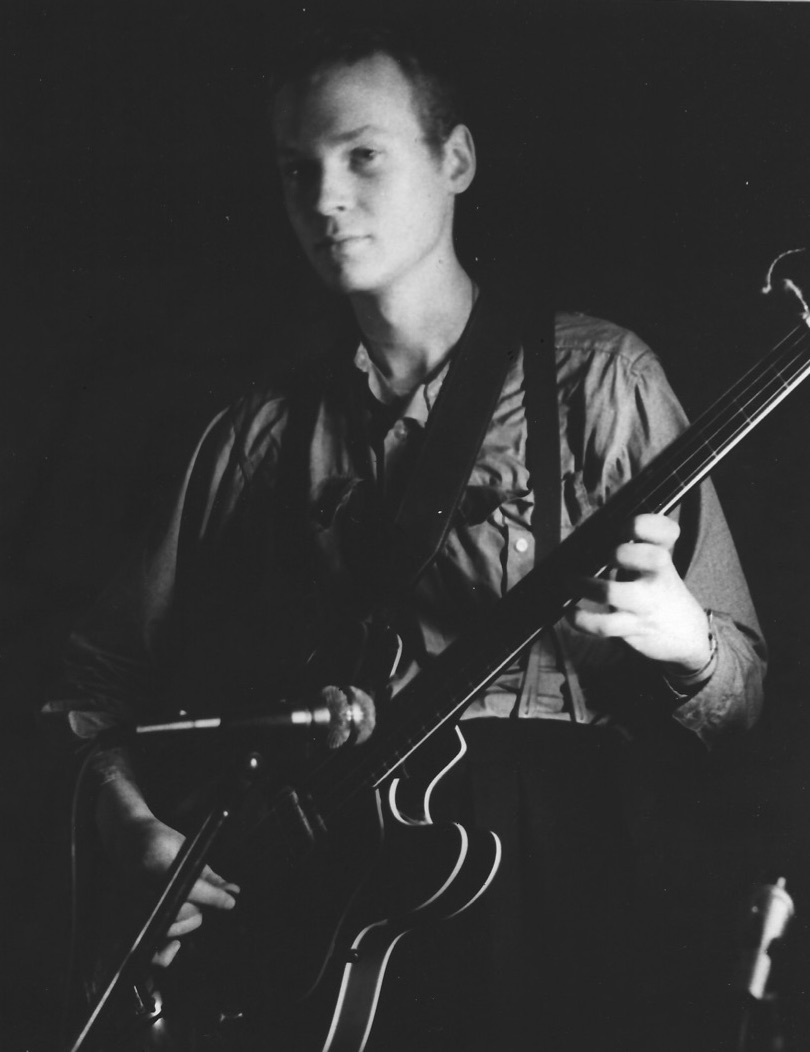
James, you were in punk bands, Smeggy and the Cheesybits, would love if you can talk about them and what later on led you to join the Chefs?
James McCallum: I liked punk music. Guitar band music in particular had become weedy or over complicated, to my mind. Helen had a friend, Simon Croucher, who in late 1978 wanted to form a band and introduced me to him. The night before I met up with him to discuss the whole band thing I saw a singer with only a bass player accompanying him. The singer announced that he was Smeggy and the bass player was the Cheeseybits. To my surprise when I met Simon the next day at his flat, Smeg (Gary Cayton) was there too, the bass player having apparently left. We pulled some songs together, some written by Simon and some relics of Smeg’s previous bands and I wrote my first song ‘Stuck on You’ adapting some lyrics written by Simon and adding a sort of tune and some words of my own. I bought a second-hand bass and borrowed an amp from Helen, Simon played a cheap guitar through an enormous amp with a fan in it, and a friend of Simon’s who ran an art gallery in Brighton played drums. The only gig we played, at Brighton’s Alhambra in October 1978, was pretty much a disaster. One of the audience was creased up with laughter throughout the whole thing, so I suppose that was some consolation. It turned out that there was another Cheeseybit, Big Dave Bowater, who played guitar. Gary had found a bass player and I was invited to see Smeggy and the Cheeseybits support the Damned at Sussex University on the basis that I might play guitar with them. Dave asked me if I wore roll-neck pullovers and the answer, “no,” turned out to be correct, and I joined the band on rhythm guitar. There were no rehearsals at first and it was difficult to remember how the songs went. Also at first there was no drummer but then a very fine rockabilly drummer, Bernie Richards, sat in on a gig and later joined us, and we also borrowed a saxophone player, Chris Anderson, who was also bass player for local band the Accents. We also started to practice regularly in the vaults of the Resource Centre sharing a space with the Chefs, the Accents and another band, Midnight and the Lemon Boys and doing a number of gigs in the Resource Centre vaults, sometimes with some combination of the other bands and continuing to do gigs in the regular Brighton venues and occasionally elsewhere. The performances were always chaotic, the songs were comic or ridiculous and tended to degenerate into free-form cacophony, and there was a lot of very funny babble from Smeg in between numbers. I also occasionally played bass with other local bands, including Anti-Art and an early incarnation of the Objeks. Smeggy and the Cheeseybits split up in 1979 when Bernie, an actor by profession, got a job as an actor/drummer on a theatrical tour celebrating Elvis Presley. Big Dave returned to his family home in the Isle of Wight. We had restricted ourselves through musical differences, Dave blocking some of my songs because he said they had too many chords, me objecting to some of his songs that seemed to be set up for lead guitar solos, which I generally found irritating, so things had got a bit tense and I had had enough of the band and I rejected Smeg’s suggestion that we set up the band again. I accepted the offer of a second guitar spot with the Chefs, an offer that I had previously rejected. I did play one more gig when Smeggy and the Cheeseybits reconvened for some reason and I played bass with Smeg, the Objeks and Anti-Art and guitar with the Chefs at the same gig at the Resource Centre, I think. However after that I was the Chefs second guitarist. The Chefs did play ‘Stuck on You’ with Helen on vocals for a while. Smeg subsequently became lead singer of King Kurt and still performs with the current version of that band.
What’s the story behind your 1980 Chefs EP?
Helen (McCookerybook) McCallum: Attrix had made a bit of money from the success of the Piranhas, and because they liked our songs a lot, they asked us to do the EP. It felt like a very natural progression, because we had a strong idea about the way we wanted our songs to sound, how we wanted to look and even our colours (yellow and blue). Looking back, this was called “marketing,” but it felt a lot less cynical than that. It felt like playing at something at the time, rather than a deliberate strategy.
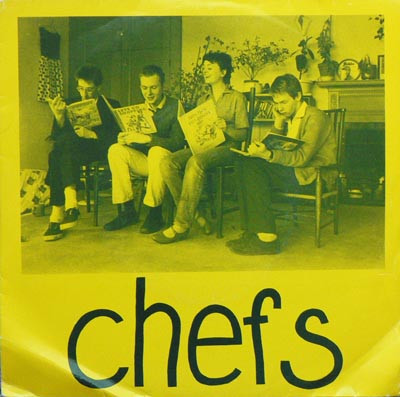
The EP came in a yellow sleeve, designed by Helen. Yellow, the Chefs’ favourite colour, was used for posters, t-shirts, stickers and badges. Were you excited when John Peel played it repeatedly on his late night BBC Radio 1 show?
Helen (McCookerybook) McCallum: Yes, it was unbelievable! I’d been writing to him from behind the till at the shop where I worked. I imagined him throwing away my letters without reading them and eventually stopped writing to him. He then announced on air that he wondered why I’d stopped writing, so of course I started again. That was the beginning of a long period of him supporting our music.
In 1981 you moved to Kilburn in North West London. What was that like for you?
Helen (McCookerybook) McCallum: There were people in Brighton who didn’t like local bands becoming successful beyond the area. It made sense to leave and try another city. At first we were swamped, but John Peel’s continued support and a residency at The Moonlight Club in West Hampstead helped us to establish ourselves a bit.
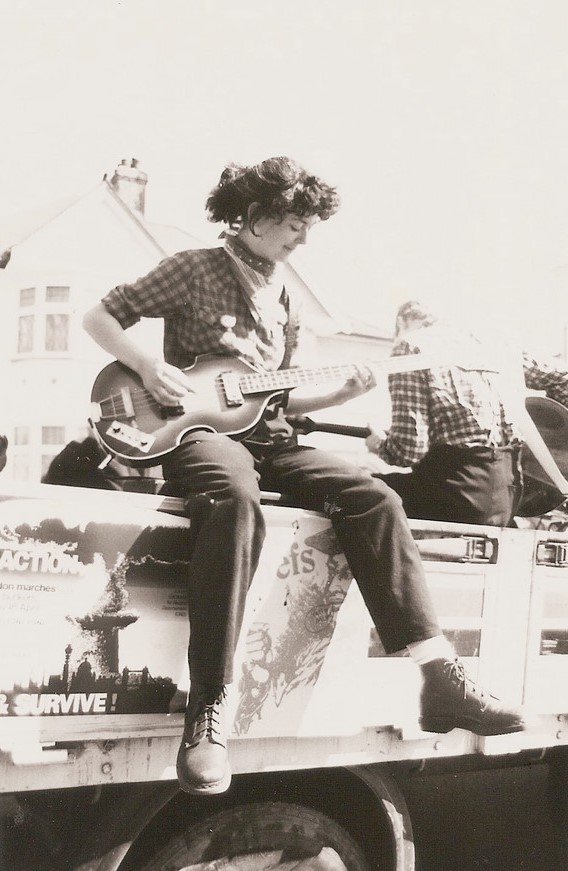
What’s the story behind your 1981 Attrix single, ’24 Hours’?
Helen (McCookerybook) McCallum: We were always trying to explore and develop musically. I really loved Donna Summer, and presented the song to Carl thinking he wouldn’t like it. It’s all based on the baseline, which I imagined as a Giorgio Moroder sound. I had no idea that his productions were machine-driven. Carl loved it and we ended up releasing it on Attrix. I was worried that John Peel wouldn’t like it, but we took it to him after a photo session close to the BBC done by a food photography assistant who wanted to become a band photographer. We ate up the leftover food from the day’s session, did the photos, then me and our new manager Jonathan went and waited outside the BBC just before his show to try to catch him. Much to our shock, he invited us up to the studio and put the record on right there and then on his show. I remember being really embarrassed and talking over it, and then she shushed me and said “This is really good.” He played it constantly after that.
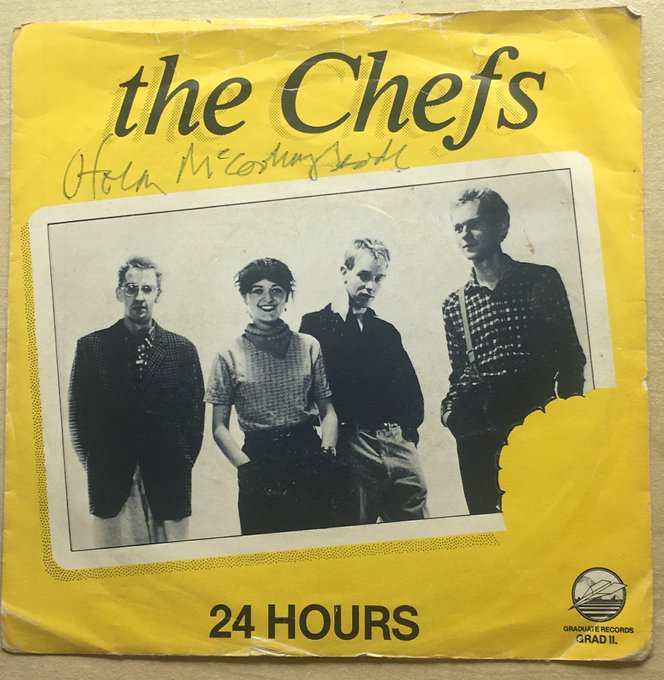
Was there ever a plan to record a full-length?
Helen (McCookerybook) McCallum: There is an album – not sure whether to release it or not!
Tell us about the first Peel session…
Helen (McCookerybook) McCallum: We were so unsophisticated! The producer, Mike Robinson, was wonderful. He really liked us. He deliberately burst a speaker with loud volume while we were there – he was a big and dramatic character!
Why did you change your name to Skat? You also have a Peel session under this name, right?
Helen (McCookerybook) McCallum: This is a hard question to answer. Neither of us made the decision, and even our Dad thought changing our name was silly. We didn’t even know he was aware of what we were doing.
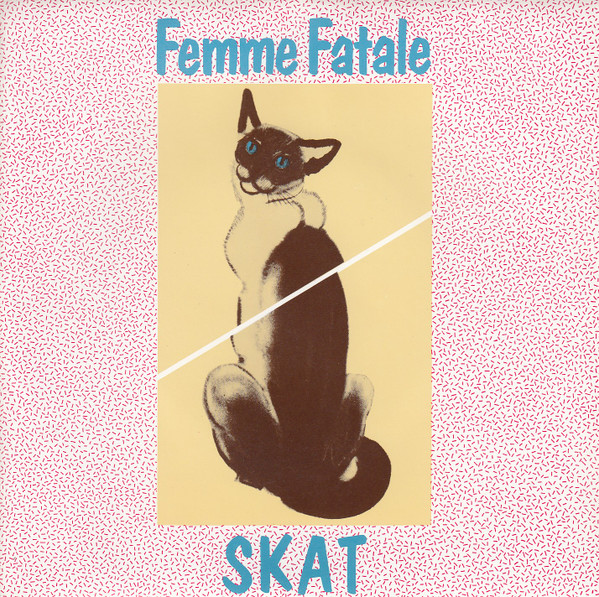
“Our positive sound, our harmonies”
What do you feel made you different from other bands?
Helen (McCookerybook) McCallum: Our positive sound, our harmonies. We had our own little musical “world” with its own musical logic that didn’t belong in the waves of fashion that took over bands in the early 1980s. In some ways we were ahead of our time. I could hear a lot of what we intended to do in the Postcard and Kitchenware stable of artists, taking that DIY punk mentality and writing pop songs with that going on underneath it all.
We are very excited about the Optic Nerve reissue of ’24 Hours’.
Helen (McCookerybook) McCallum: It’s great that the songs live on! We have worked out a way to play that and some of our other songs as guitar “covers” – some of them sound very Velvet Underground, which is perfect.
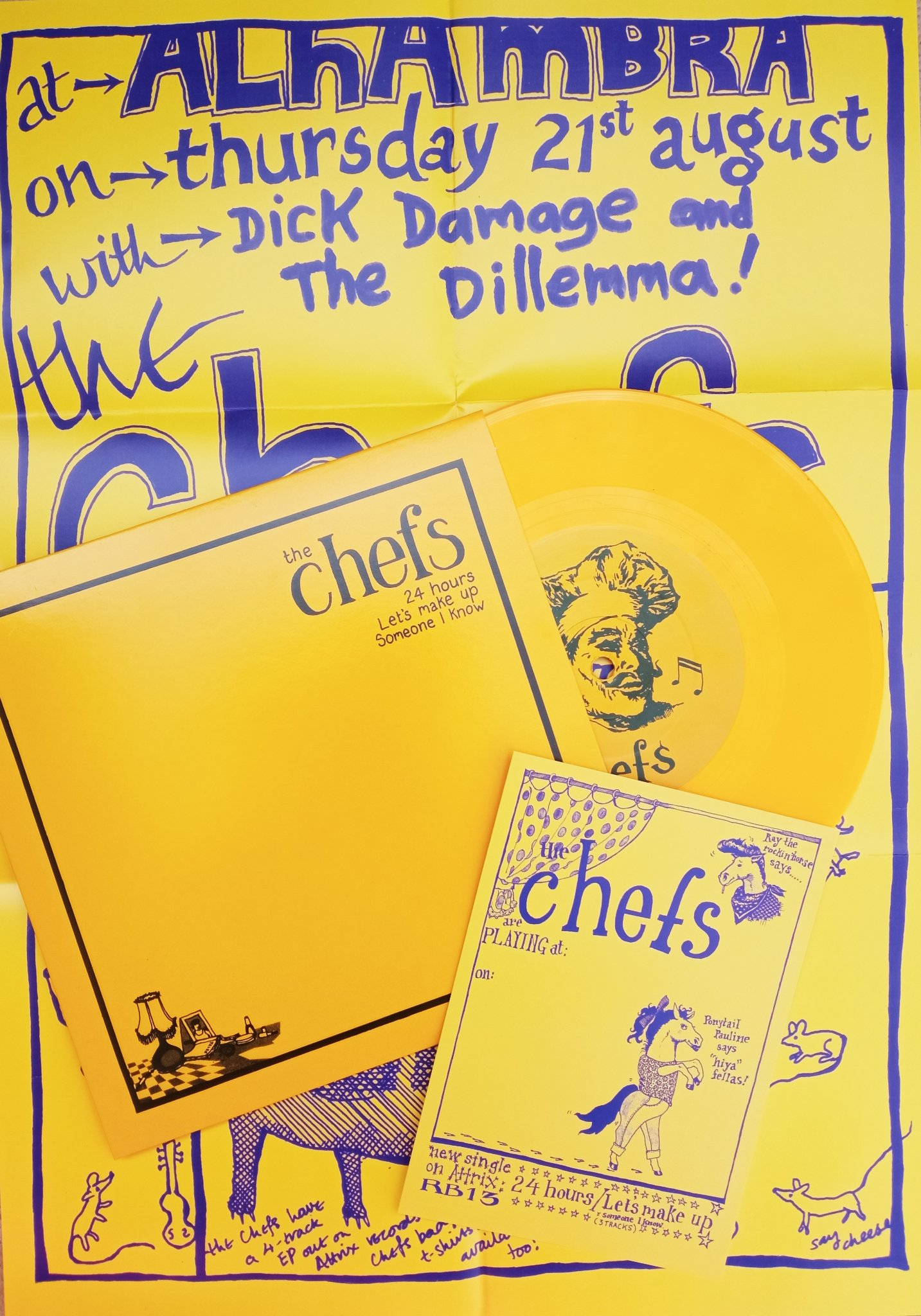
How did Helen and the Horns come about?
Helen (McCookerybook) McCallum: After The Chefs split up, I was in a bad way physically and mentally. I went to be with only a guitar for company and gradually started writing songs with a western cowboy flavour. I recorded them on a cassette and took them to Mike Alway at Cherry Red Records. He passed it onto Leicester Square, who had just temporarily left the Monochrome Set, who I was a big fan of. I didn’t hear anything back, and had given up and then at the Notting Hill Carnival I bumped into him and he was really enthusiastic. So we formed a band with a drummer Mike (who later joined the Monochrome Set), and looked for a trumpet player so we could sound a bit like Ennio Morricone. I asked Dave Jago, a trombone player who I saw playing one night, if he knew any trumpeters, and he offered himself and Paul Davey on sax instead. So they joined us.
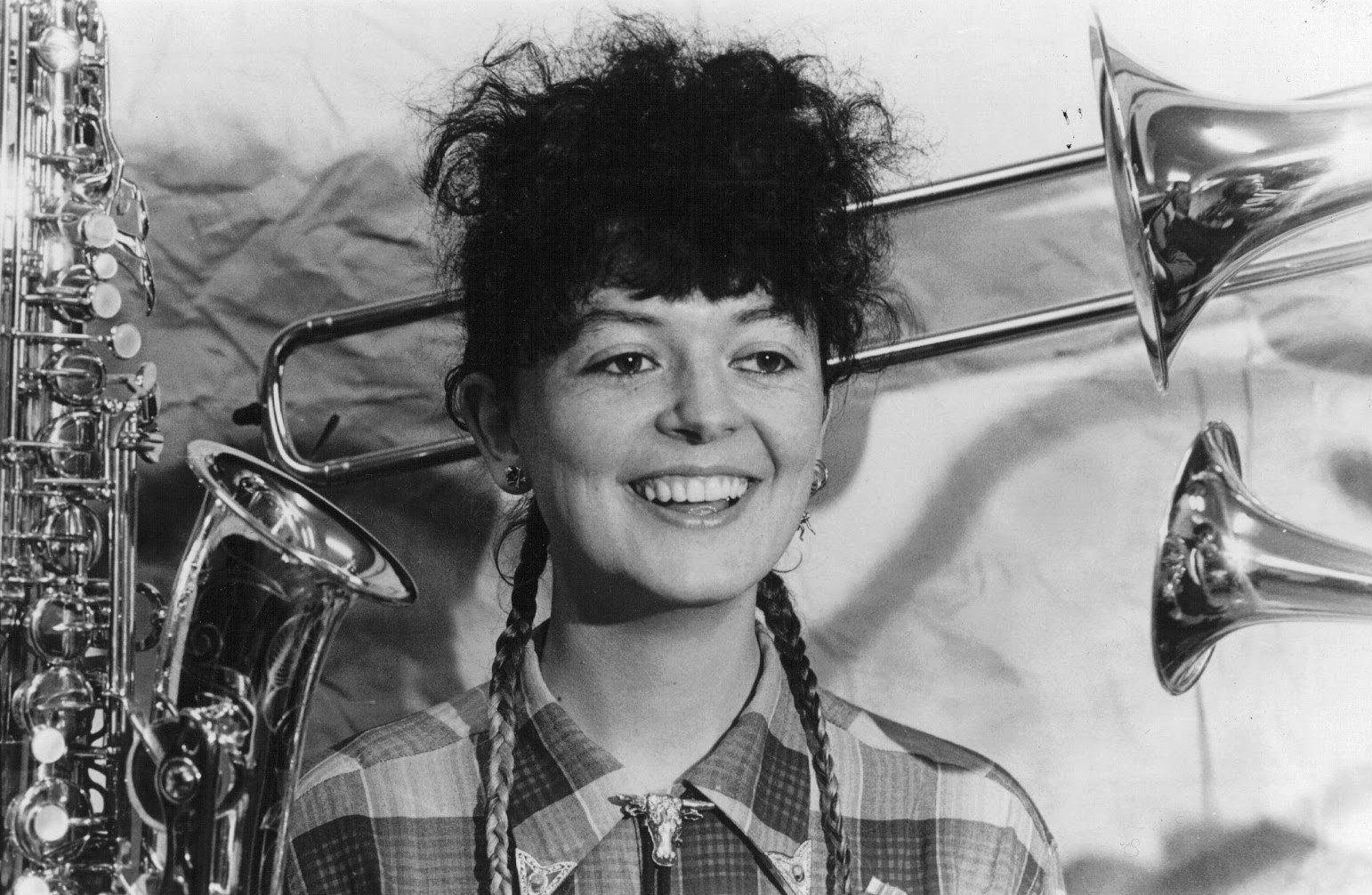
We only did one or two gigs, and then moving the drum kit to and from rehearsals became an issue, because I had no money. So I switched to guitar just to rehearse the songs with the Horns and we were offered a gig in that format supporting the Monochrome Set at Kingston Polytechnic. we went down really well, and decided to carry on in that format! I wondered what we should be called and Dave said “Helen and the Horns.” We played hundreds of gigs; with no drummer we were easy to sound check and could play on any bill.
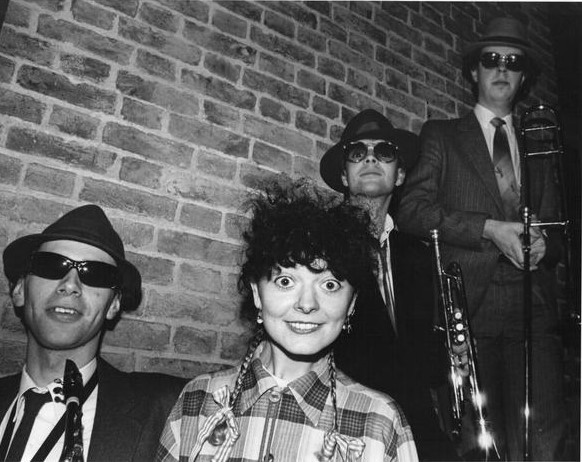
What can you tell us about the 1985 Helen and the Horns album?
Helen (McCookerybook) McCallum: We’d been signed to RCA for a singles deal and they had put us on the back burner, which was incredibly frustrating for a gigging band. Against my manager’s advice, I went to the A&R man and asked to be released from the deal early. He was so surprised that he said yes, and we were then free to record our own album. The horn player paid for it out of their wages from playing gigs, which was really touching. It was great to be able to make literally a record of our music. One side is live from a concert we did at the ICA.
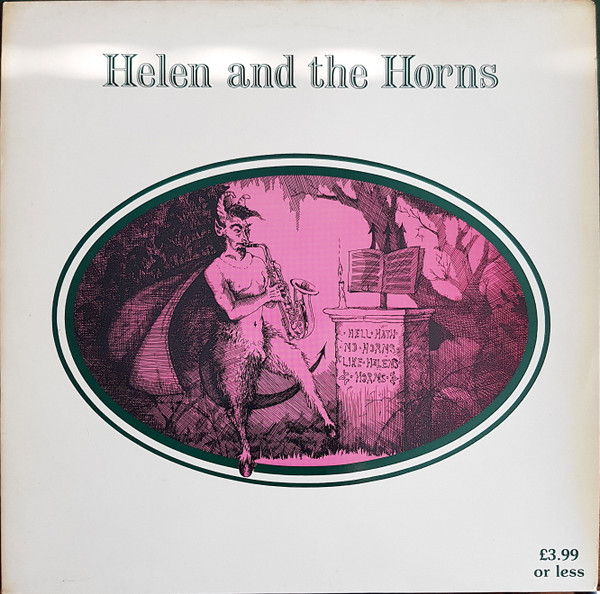
You also worked for the film industry, what was that like for you?
Helen (McCookerybook) McCallum: It was accidental, like almost everything else that’s happened in my life. I was at a party with a bunch of friends who said they were proposing a TV series called Pictures of Women to Channel Four, which had just started up. It seemed like make-believe: I’ll be the producer, I’ll be the director, she will be the researcher and Helen will you do the music? I said yes, and ended up writing and producing music not only for that series but for a couple of documentaries and library music for Terry Jones’s (of Monty Python) left wing video company. Smith Bundy Video. I’d love to get back to it again. It stopped because I started working full time as a University lecturer, and lost my network. My favourite commission was for a programme called No-One Likes Us, We Don’t Care, about Millwall Football Club and its fans. I went to loads of matches to record the chants to sample for the soundtrack, right in the middle of the crowd. It was really exciting!
What led you to a solo career with the release of ‘Suburban Pastoral’?
Helen (McCookerybook) McCallum: One year in my lecturing job I went to see almost every single student band. Jamie McDermot of the Irrepressibles (still around!) asked me to do a gig with them. I had very few songs (three! Just like when The Chefs began) and was shaking with fear because it was only the second time I’d ever played solo. Just like in punk times, I got offered more gigs and so I started to write songs again, and once I started I couldn’t stop. I started recording them at another student’s hours and by the time I had 20 songs it seemed like a fun idea to make a DIY CD. It was such a good counterpoint to the responsibilities of my job, and this was around the time of Myspace and my songs were getting a lot of plays every day. So I just went with the flow, and roped friends in to listen and choose the best ones. The cover art is by Ben Wilson, the chewing gum painter, who lives locally and who was delighted to paint the design on to a chewing gum splay on the pavement in a local street. It was still there until very recently.
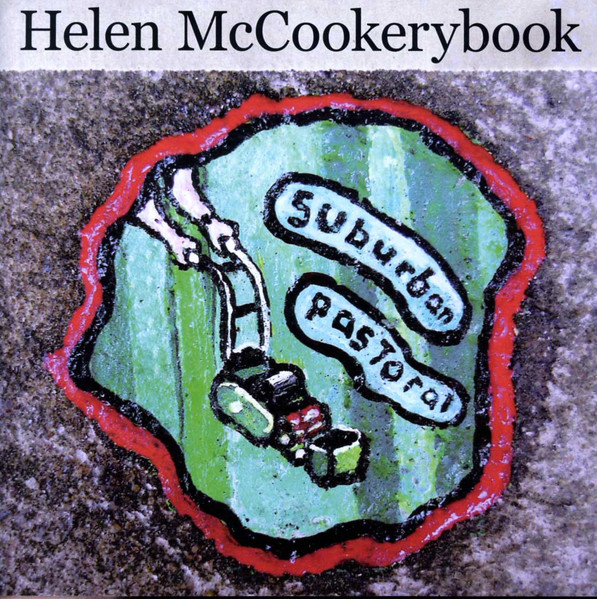
You have a brand new album out, ‘Drawing on my Dreams’, can you share some further words about it?
Helen (McCookerybook) McCallum: I’ve loved every minute of making this album. Lots of the songs were written for a weekly song circle that happened during lockdown, driven by Katy Carr, a folktronica musician who used to be a student of mine years ago. I decided to engineer and record the whole thing by myself to get exactly the sound I wanted, ethereal poppy melodies with cutting lyrics. I’m so pleased with the way it sounds.
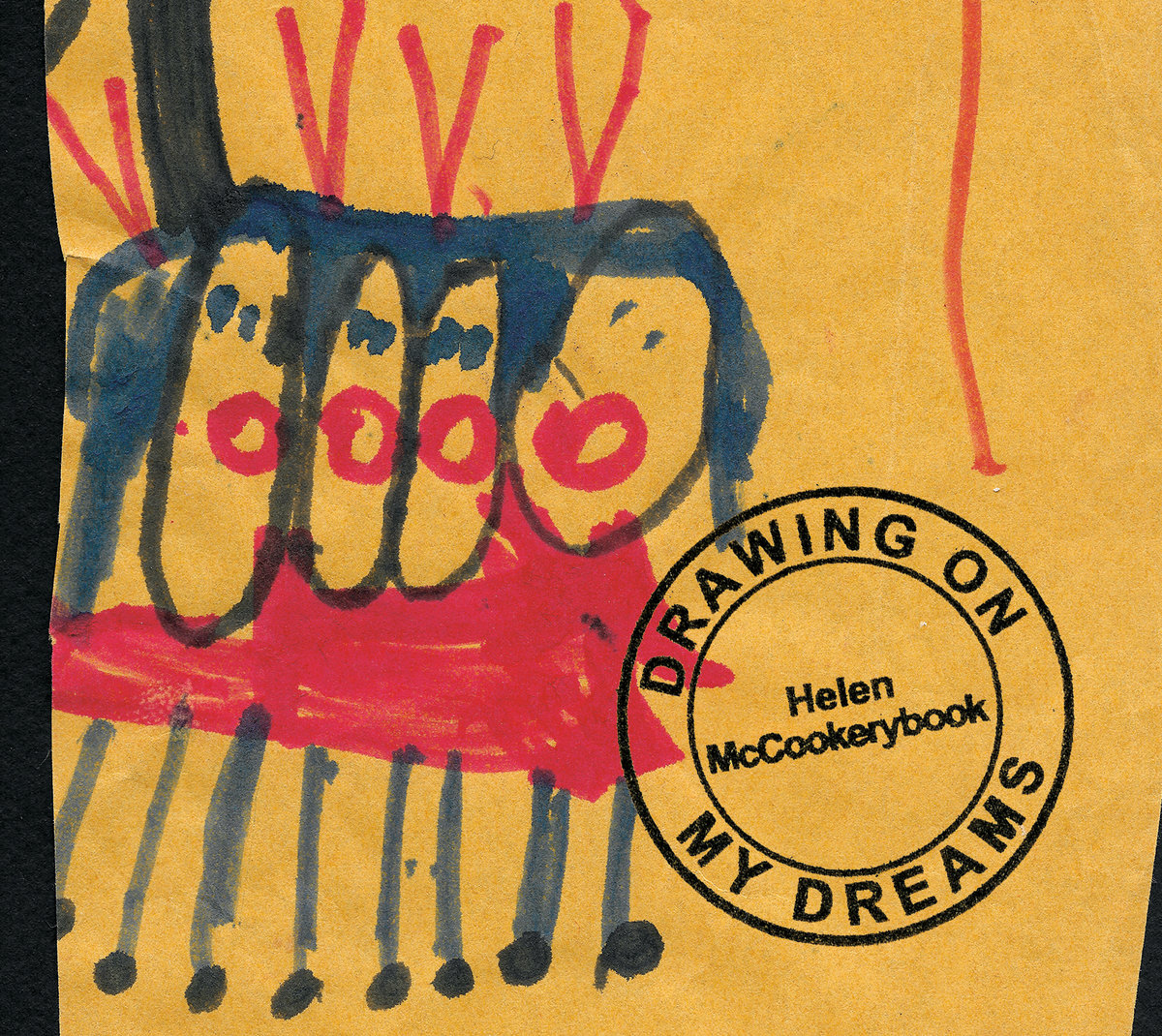
Do you have any other projects you’re involved with?
Helen (McCookerybook) McCallum: I’ve got a side project with the Austrian songwriter Robert Rotifer – we write together, and the collaboration seems to really work musically and personally. We’ve released 2 EPs on the label Gare Du Nord, one on vinyl and the other digital.
What are some future plans for you?
Helen (McCookerybook) McCallum: More gigs and more collaborations, I hope!
Let’s end this interview with some of your favourite albums. Have you found something new lately you would like to recommend to our readers?
Helen (McCookerybook) McCallum: Andy Warhol’s Velvet Underground, Linda Lewis ‘Lark’ album, and Rachel Love’s new music. She used to be in the Dolly mixture, who we played a lot of gigs with as The Chefs. She still really has it as a songwriter – I went to see her live a few weeks ago and was blown away!
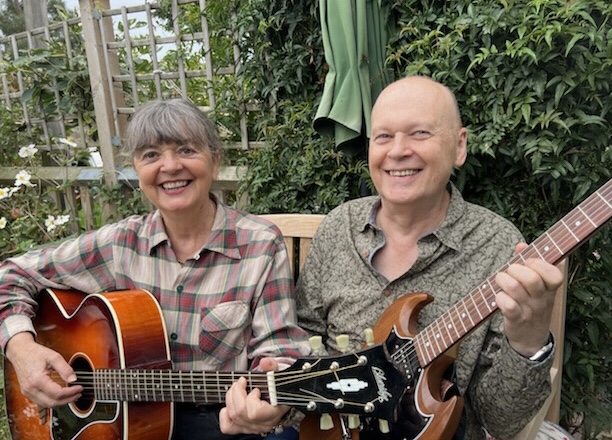
Thank you. Last word is yours.
Helen (McCookerybook) McCallum: Thanks for asking us to do this interview. There’s not often the chance to sit down and think about the past, and this has been a great thing to do!
Klemen Breznikar
Headline photo: Paul Roundhill
Pop Up Chefs reunion gig featuring Helen (McCookerybook) McCallum (The Chefs/Helen & The Horns and AKA Dr Helen McCallum) and her brother James McCallum (Smeggy and the Cheeseybits/The Chefs and AKA ‘Bruv’) has been postponed, for Covid reasons, until Wednesday 25th January 2023.
Optic Nerve Recordings Official Website / Facebook / Instagram / Twitter / Bandcamp / YouTube

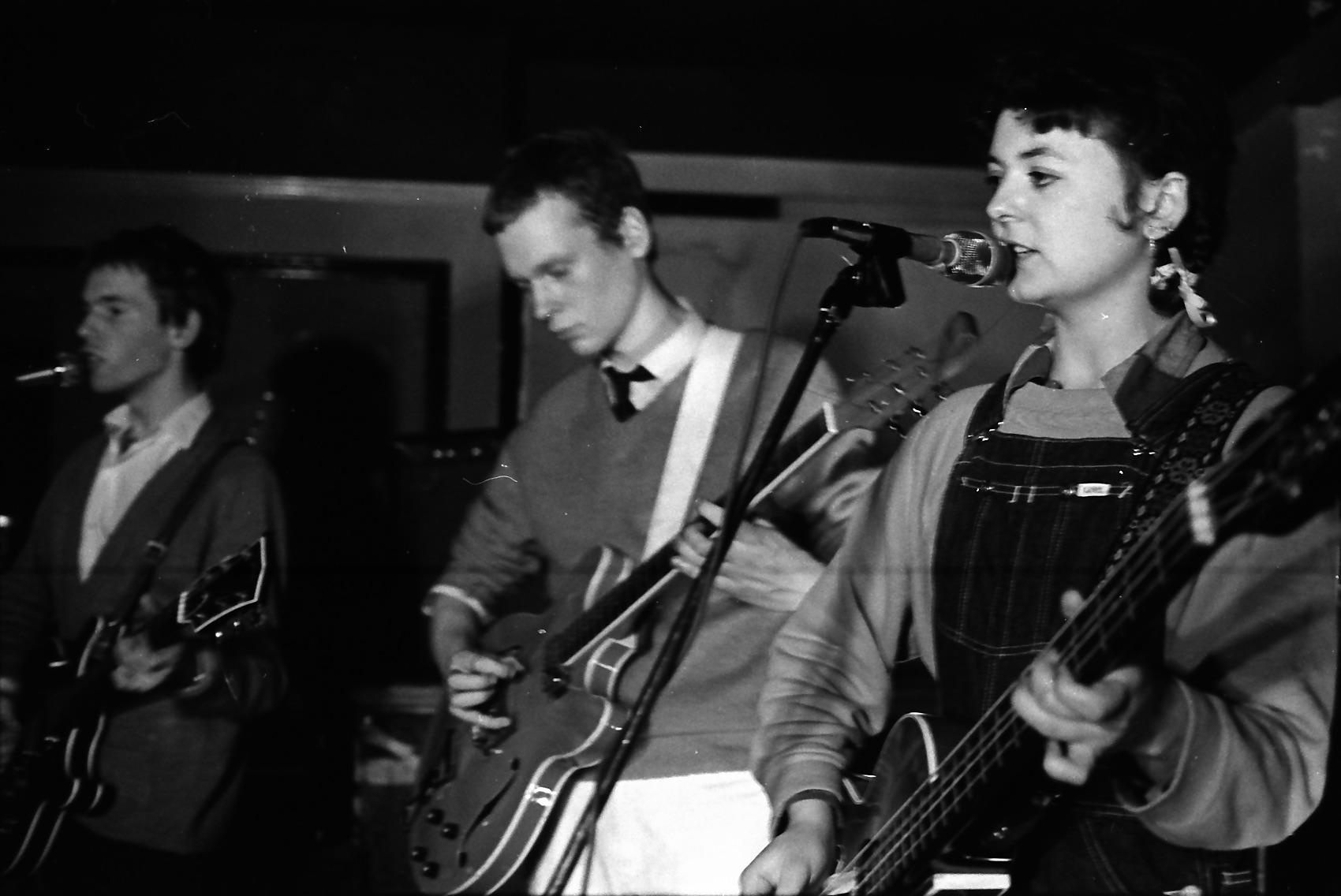
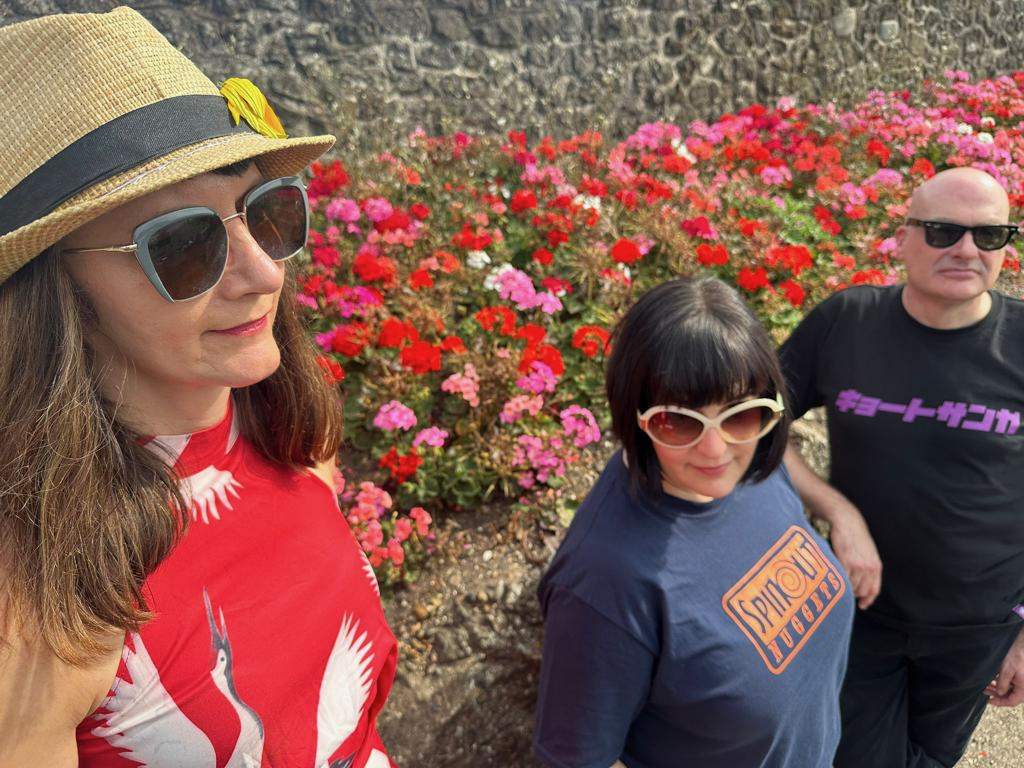
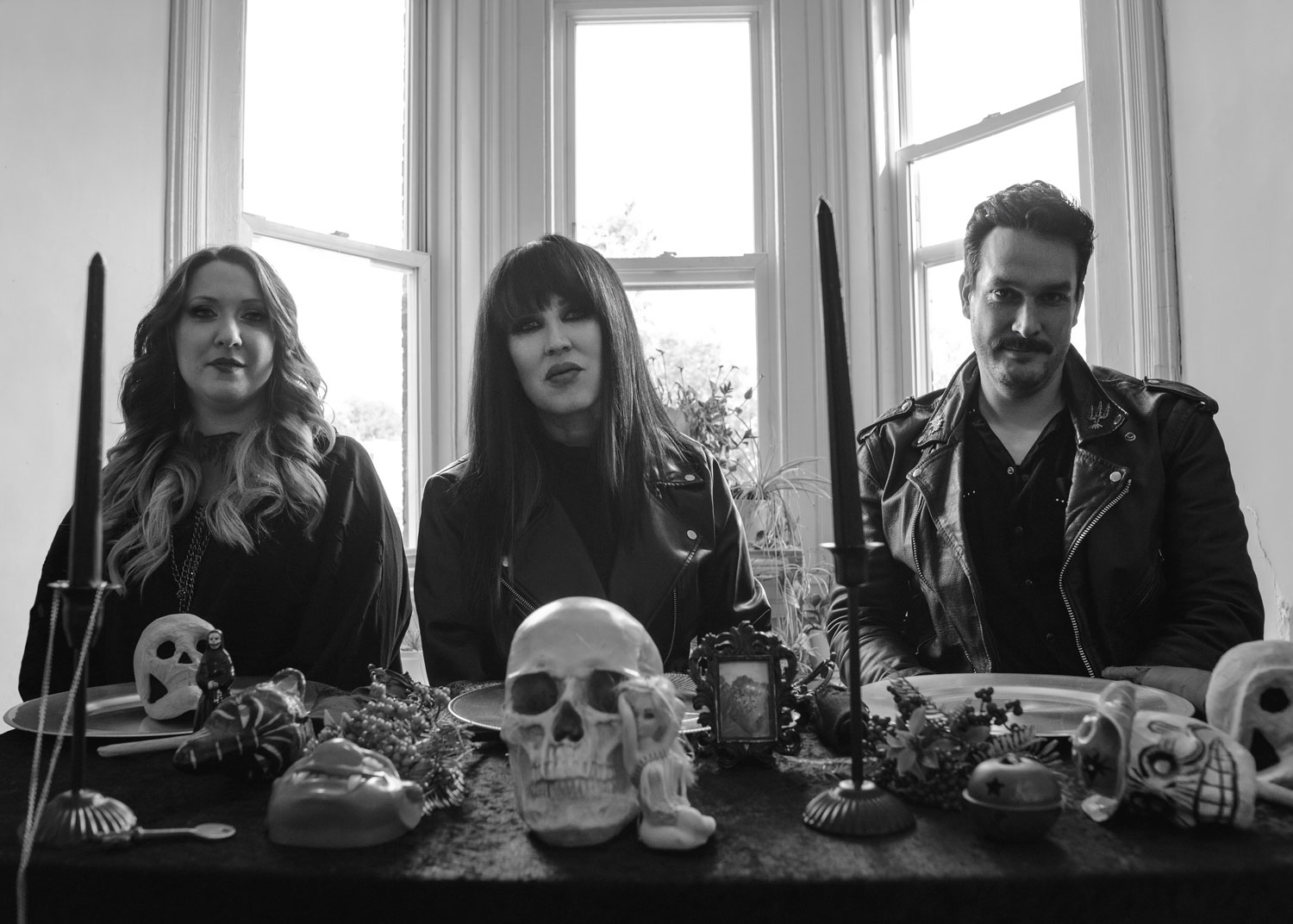
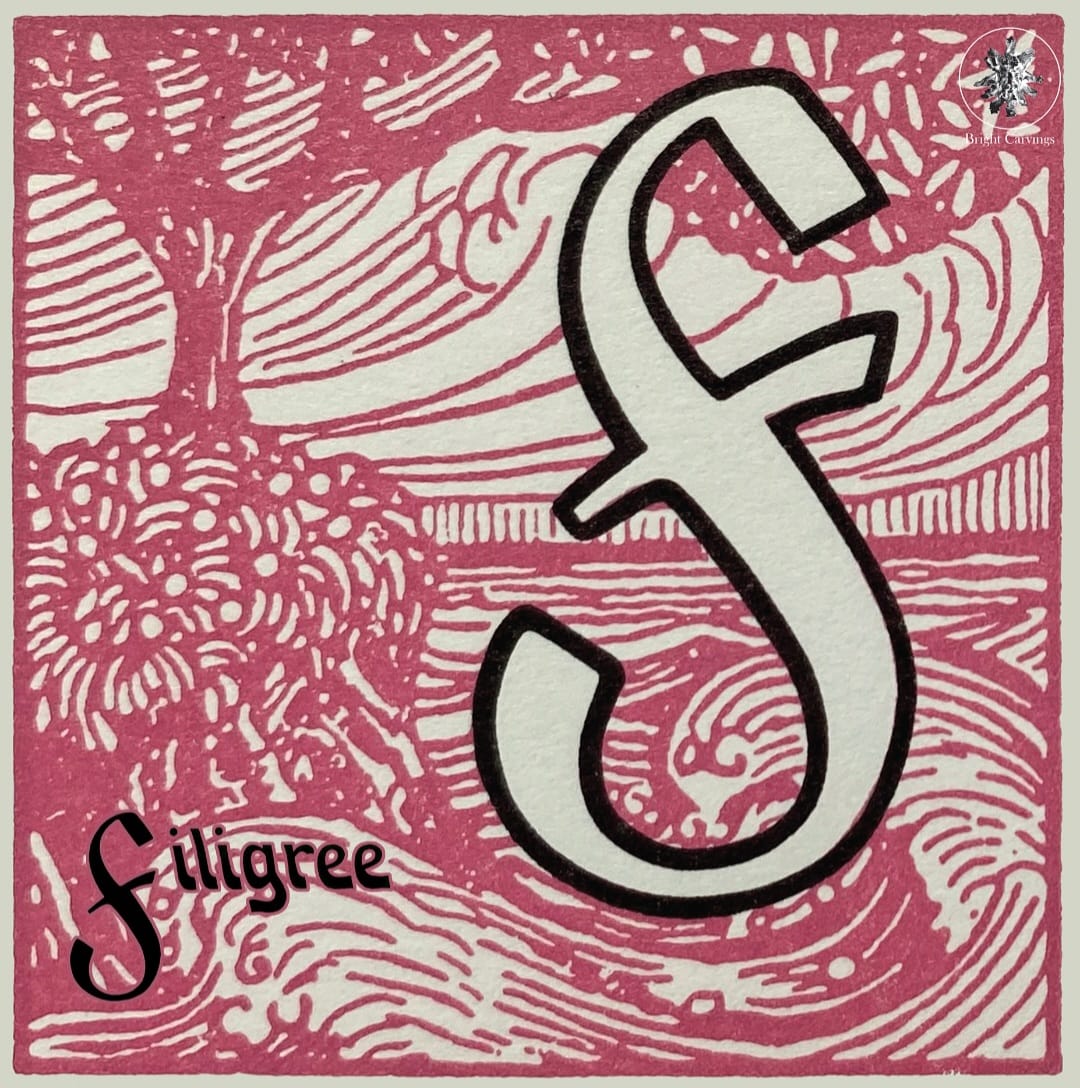
Thank you for this unknown
Gorgeous Lady, You probably do not like those words, most voricerfelishy, or vocifferelly, Oh bollox , I can never spell that woid. Feminists ! Eh? I recall talking to you before a gig at the Alhambra and you opened up my perception of respect and reality, 1978.